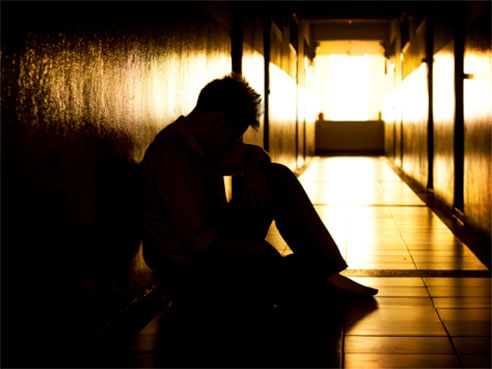 Survivor’s guilt can often be a byproduct of those who survive shootings like the most recent one in Oregon, says Josh Klapow, Ph.D., associate professor in the University of Alabama at Birmingham School of Public Health and a clinical psychologist.
Survivor’s guilt can often be a byproduct of those who survive shootings like the most recent one in Oregon, says Josh Klapow, Ph.D., associate professor in the University of Alabama at Birmingham School of Public Health and a clinical psychologist.
It has been reported that one of the victims in the mass shooting was a man who was asked by the shooter to give something to the police and then given instruction to sit in the back of the room, where he watched others be shot and killed by the gunman.
“This individual has just survived something that many people could not even imagine,” Klapow said. “He has been exposed to a life-threatening situation that is far outside the realm of normal human existence. Reactions afterward from anyone like this victim involved in this type of event may range from a broad array of acute stress reaction symptoms — nightmares, intrusive thoughts, severe anxiety, hypervigilance — to complete emotional numbness as his natural and hard-wired psychological defense mechanisms kick in.”
Any victim who experiences this type of situation — or any similar situation in which he or she may feel guilt — needs to be supported psychologically by a team of mental health professionals.
“It’s almost akin to an individual with a severe infection whose body needs time to develop the strength and the antibodies to fight it off,” Klapow said. “He may feel nothing, he may feel extremely scared, he may feel extreme guilt and also extreme relief.”
Klapow says encouraging those who may feel survivor’s guilt to engage with professionals equipped to help them through situations like this is vital. And while having family and friends to lean on, professionals experienced in helping those suffering with grief and severe anxiety also are necessary.
| Klapow also stresses that this will be a process, not a quick fix. A person’s brain needs time to synthesize the information, make some sense of it, and incorporate this event into how he or she lives life. |
Klapow also stresses that this will be a process, not a quick fix. A person’s brain needs time to synthesize the information, make some sense of it, and incorporate this event into how he or she lives life.
“He needs to know that he has access to professionals who are equipped to help him through this,” Klapow said. “This is different from friends and family. He needs them as well, but the most important thing people can do for victims in this type of circumstance is work with them and not try to move them emotionally in one direction or another. This is about being there to support him, to listen if he wants to talk, to leave him alone if he needs time to process. His needs will change day by day, even hour by hour. Letting him know that he has unconditional support, that people are there as his friends and family, and that he is under the watchful eye and care of a mental health team will allow him to process this tragic event.
“This is not days,” Klapow added. “This is weeks, months, years.”